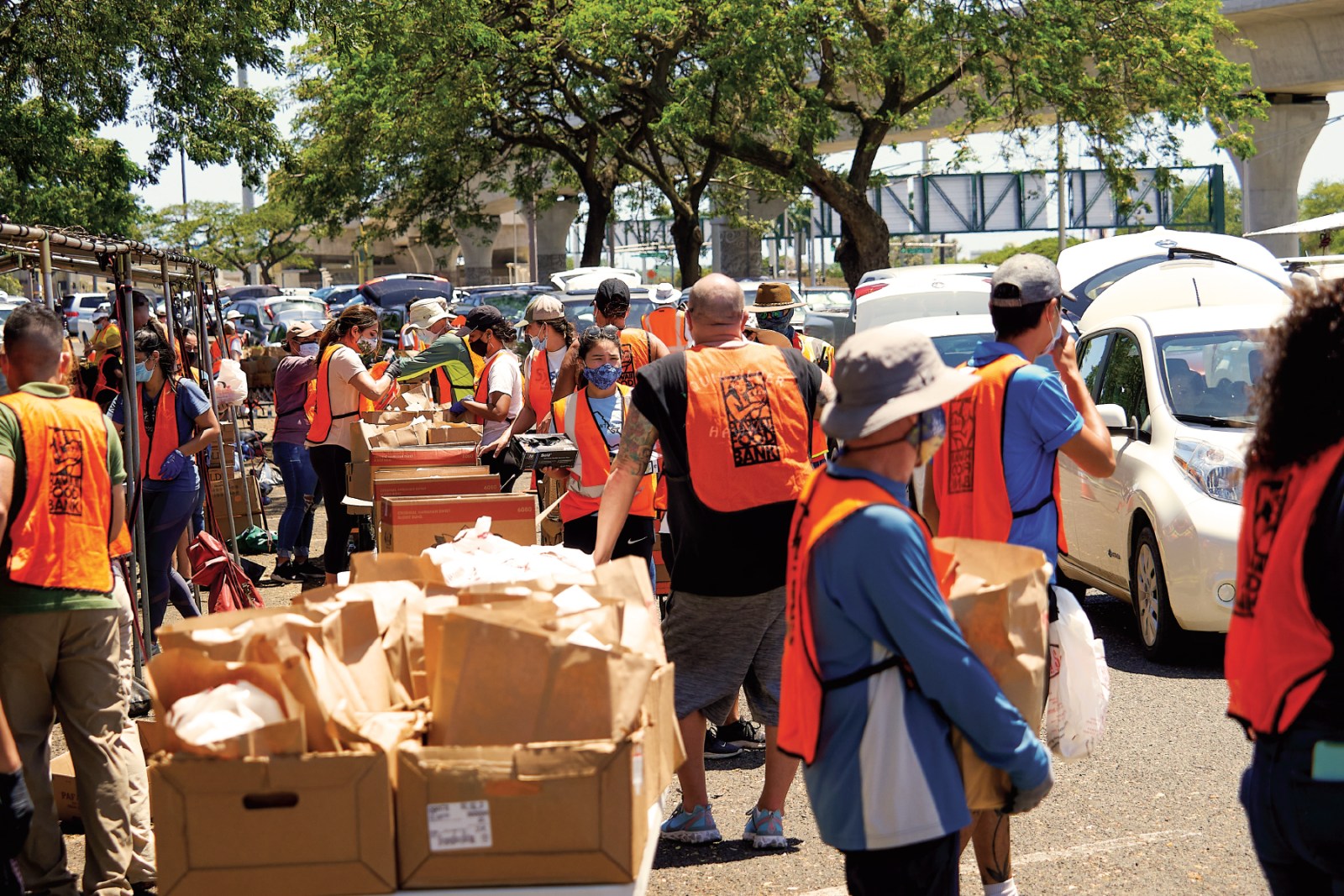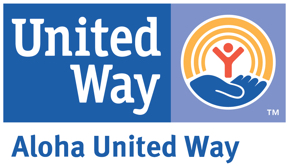
The annual overview shows local philanthropy remained strong in 2019 – an important foundation for local charities considering the difficult challenges they face this year.
Charities are pivoting this year to meet the need for services. For instance, local food banks are facing hugely increased need yet are not being supplied by traditional food donation drives.
Hawai‘i’s generosity shone again in 2019, with another year of benevolent support from companies and nonprofits on our Most Charitable Companies list.
A total of $119.8 million in cash and in-kind donations were given by 90 organizations across O‘ahu, Maui, Hawai‘i Island and Kaua‘i last year. Employees of these organizations gave an additional $4.4 million and 82,374 hours of their time to philanthropic causes.
The list is broken into three categories this time: charities, nonprofit companies and for-profit companies. We wanted to provide an apples to apples depiction of giving by companies with similar structures. Every business is unique, and categorizing is never a perfect science, but we believe this is the best way.
Thirteen nonprofit companies reported total giving of $8.4 million in 2019: $7.6 million in cash and the rest in-kind. Among these companies, the average giving as a percentage of gross annual sales was 0.31%, with a median of 0.23%.
Sixty-nine for-profit companies reported total giving of $28.8 million in 2019. The for-profit companies averaged giving 0.25% of their gross annual sales with a median of 0.1%. The largest percentage was 2.33% – reported by law firm McCorriston Miller Mukai MacKinnon.
Charity Impacts
The eight charities on this list reported total giving of $82.7 million in 2019. Hawaii Foodbank and Aloha United Way contributed $34.8 million of that total. More companies said they donated to Hawaii Foodbank and its partner organizations Maui Food Bank and Hawai‘i County’s The Food Basket than any other charity; Aloha United Way was second. The American Heart Association, Child & Family Service and Ho‘ōla Nā Pua round out the top five charities that companies donated to in 2019. The Hawai‘i Community Foundation did not report its donations to Hawaii Business Magazine this year.
Hawaii Foodbank worked with 51 partner agencies on its ‘Ohana Produce Plus program in 2019 to distribute over 2.6 million pounds of produce and 3.7 million pounds of other food across O‘ahu and Kaua‘i, Danny Schlag, director of marketing and communications for the Hawaii Foodbank, tells Hawaii Business Magazine via email. This program is a primary source of produce for many low-income families, kūpuna, and homeless or disabled people.
A program that saw tremendous growth in 2019 was the Food 4 Keiki School Pantry initiative, Schlag writes. Over a dozen pantries were established during the 2018-19 school year serving 11,702 students with after-school snacks and food bags to share with their families. Two other programs provided over 12,000 kūpuna with vital staple foods last year, he writes.
Food donations remained steady in 2019 and cash donations increased, which was a good thing as 2020 has brought an “unprecedented challenge of providing food to thousands of households newly at risk of experiencing food insecurity,” Schlag writes. Since March 2020, Hawaii Foodbank has purchased over $5.25 million in emergency food supplies, compared to a typical $400,000 annually.
Pandemic-related supply chain disruptions and a decrease in food collection drives due to stay at home orders have resulted in low inventories at food banks. “Items that normally take four to six weeks to get to Hawai‘i from distributors on the continental U.S. are now taking three to four months to arrive,” Schlag writes.
Nonetheless, he says, the food banks are doing their best to meet the massively increased demand.
In April, Hawaii Foodbank committed to purchase $200,000 of local agriculture products in a partnership with the Hawaii Farm Bureau, a strategic effort to help local farms that was already being planned pre-COVID. As of mid-September, the Hawaii Foodbank had actually purchased $900,000 worth of local produce from 24 Hawai‘i farms, Schlag writes.
Aloha United Way
Aloha United Way invested $18 million into the community in 2019 through its Community Care Fund. This money was channeled to 324 partner organizations to provide community services – a model that the AUW says allows a quick and nimble response to meet evolving needs of Hawai‘i’s most vulnerable.
One of the most used services was AUW’s 2-1-1 helpline, a call center for individuals who need help to tap into available resources quickly. AUW reports that 82,709 people used 2-1-1 last year.
“In 2019, Aloha United Way celebrated one hundred years of service to our communities. None of that would have been possible without the generosity of community members and partners,” President and CEO John Fink says in an email to Hawaii Business Magazine.
AUW’s other charitable focuses in 2019 included housing, childcare and early learning, and postsecondary education. These initiatives helped the state’s asset limited, income constrained and employed population – the ALICE families – the folks who work in Hawai‘i yet do not earn enough to save money.
Fink says 2020 “has proven to be a great test of AUW’s mettle. We have created new relationships and strengthened old ones as we partnered with government, business and nonprofit leaders. Working together has enabled us to ramp up support for those in need through our funding services and the AUW 2-1-1 referral service.” AUW says weekly call volume to the 2-1-1 helpline increased over 600% since the onset of the pandemic.
The latest figure before this story was published was that $1.68 million has been raised for the Hawaii COVID-19 Response & Recovery Fund. Some of that money went to AUW’s COVID-19 rent and utility assistance program, which has saved 665 households statewide from eviction, the charity reports.
Methodology: Data for the Most Charitable Companies list was compiled through surveys conducted by Hawaii Business Magazine. All information is self-reported by the organizations on the list. We asked companies to indicate if they are for-profit or nonprofit organizations. We then created three lists: one of for-profit companies, another of charitable nonprofits and a third of nonprofits like credit unions and health insurers.
The charity category includes organizations whose sole purpose is philanthropy and serving the community.
